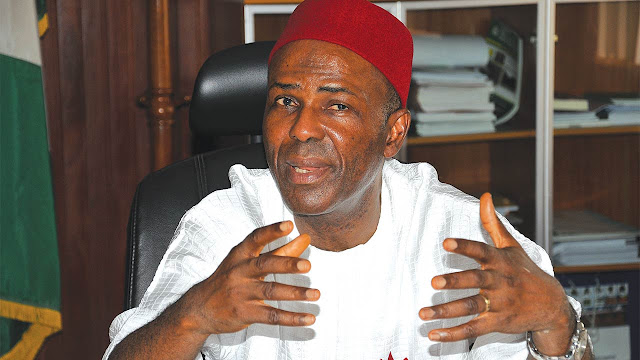S/East 2023: Yoruba Didn’t ‘Belong’ Before Producing President In 1999
In 1999 the Yoruba people of South West Nigeria produced a democratically elected president in the person of President Olusegun Obasanjo, even though the Yoruba at the time did not ‘belong.’
At the time, the party to belong to-if we are to believe late Isa Funtua who told Arise TV team led by Reuben Abati not long ago that if the Igbo want to produce the president in 2023 they must first ‘belong’-was the Peoples Democratic Party (PDP). If that is the true interpretation of Funtua’s ‘belonging’, it means that in 1999 the Yoruba did not ‘belong’ because instead of supporting the candidate of the PDP which enjoyed overwhelming national support, they pitched their tent with the Alliance for Democracy (AD).
If the PDP had at the time given its presidential ticket to a non-Yoruba such a candidate would have trashed the Yoruba backed candidate of the AD, Chief Olu Falae in the election just as Obasanjo did!
The reason why Yoruba still produced a president despite its disdain for PDP and its presidential candidate then was because the PDP candidate was also a Yoruba, a man they love to hate, but who was accepted by the rest of the country.
The reason why this was possible is because those who determine who gets what had at the run up to the return to democratic governance in Nigeria in 1999 decided that the president of the country MUST be a Yoruba. This shadowy group that determines who gets what in Nigeria, majority of whom were Northern retired and serving military leaders wanted to assuage the anger of the Yoruba because of the annulment of the June 12, 1993 presidential election in which a Yoruba man and candidate of the Social Democratic Party (SDP) was poised to win.
The annulment of that election galvanized the Yoruba elite to mount unprecedented opposition to the Babangida led junta, to the extent that the Minna born General was forced to ‘step aside’ and in his place an Interim National Government headed by Chief Ernest Oshonekan was constituted.
The emergence of Shonekan, another Yoruba did not assuage the tribe, they insisted on the revalidation of the mandate of Chief MKO Abiola. There was uncertainty over the future of the Interim National Government especially as it lacked popular support both nationally and in Yoruba land in particular. It was a perfect environment for a coup master like General Sani Abacha to take over governance by force. Which he did!
If the Yoruba thought that there would be rapprochement between the tribe and Abacha led junta they were wrong. All the entreaties to Abacha to revalidate Abiola’s mandate was rebuffed and to prove that he meant business he put in prison Abiola who unilaterally declared himself president of Nigeria.
Abacha did not only show unwillingness to enthrone Abiola as the democratically elected president, he began a thinly veiled campaign to transmute from a military head of state to a civilian president. It was in the midst of Abacha’s metamorphosis campaign that the maximum ruler suddenly died on June 8, 1998. And his place was taken by General Abdulsalami Abubakar as Head of State.
General Abubakar and the country were yet to take a position on the Abiola quagmire, when Abiola a month after the death of Abacha died in prison on July 7, 1998. His death opened a new chapter for the country’s political renewal.
Abdulsalami who read the mood of the nation so well did not delay in preparing ground for the return to democratic rule. The necessary laws were passed and the political parties formed for a return to civilian rule.
The PDP became the rallying point of most political leaders nationwide, while the Yoruba formed their own party the AD preparatory for the transition to civil rule. As a matter of fact the AD did not meet the criteria to be registered as a party, but it was registered anyways, because at the time there was a general consensus among what you can call in today’s parlance ‘the cabal’ dominated by Northerners who had concluded alongside the Head of State, General Abdulsalami Abubakar that the president must come from the South West as the penance the country had to pay for the annulment of June 12, 1993 presidential election that a Yoruba man was poised to win.
The above model that the country used in producing a Yoruba president in 1999 should be applied in 2023 to ensure that the South East produces a president for Nigeria if truly this country believes in justice and fairness to all sections of it.
More than 50 years after the civil war, this is the time to show that this country is indeed one Nigeria, indivisible under God. Since the return of democracy in 1999 all the other zones of the country have produced presidents for the country with the exception of the Igbo people of the South East zone.
To make this project seamless, all the registered political parties in 2023, especially the big ones, should see it as a patriotic duty to zone their presidential tickets to the South East. This appeal is especially to the two dominant parties; APC and PDP. Interestingly, there are many eligible, credible and eminently qualified persons from the South East in all the registered political parties in the country.


Comments
Post a Comment